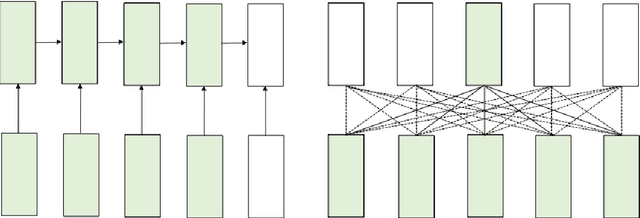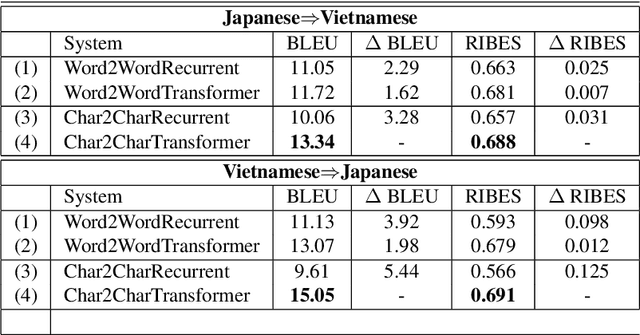How Transformer Revitalizes Character-based Neural Machine Translation: An Investigation on Japanese-Vietnamese Translation Systems
Paper and Code
Oct 17, 2019


While translating between East Asian languages, many works have discovered clear advantages of using characters as the translation unit. Unfortunately, traditional recurrent neural machine translation systems hinder the practical usage of those character-based systems due to their architectural limitations. They are unfavorable in handling extremely long sequences as well as highly restricted in parallelizing the computations. In this paper, we demonstrate that the new transformer architecture can perform character-based translation better than the recurrent one. We conduct experiments on a low-resource language pair: Japanese-Vietnamese. Our models considerably outperform the state-of-the-art systems which employ word-based recurrent architectures.
 Add to Chrome
Add to Chrome Add to Firefox
Add to Firefox Add to Edge
Add to Edge